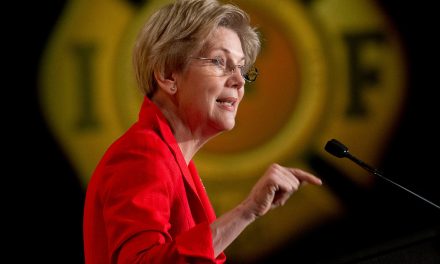From Kevin Zeese, Attorney General in the Green Shadow Cabinet:
More than three million people have been arrested on marijuana charges, at a rate of 90 per hour, during the Obama era.
Marijuana was first made illegal by the federal government in 1937, 76 years ago. This year when the National Drug Control Strategy was released, the only thing President Obama wrote in the introduction about marijuana was: “we continue to see elevated rates of marijuana use among young people, likely driven by declines in perceptions of risk.” That one-sentence shows the failure of marijuana prohibition: after decades of a “war on marijuana” use is increasing and perceived risk declining. Indeed, according to federal research
the most widely used illegal drug; and adolescents use marijuana at higher levels than tobacco and find it easier to purchase than alcohol or prescription drugs.
The United States is stuck in a marijuana war quagmire. The more the marijuana war fails, the more funding, more destruction of individual rights, the more arrests, the more incarceration – the more ruined lives. The result: more failure at greater costs.
The people are showing the path out of the marijuana war quagmire. The Justice Branch of the Green Shadow Cabinet issued a report this week that shows how the Obama administration can respect democracy and federalism and allow the implementation of laws that would regulate and tax marijuana in Colorado and Washington State, as well as in the 18 states and District of Columbia that allow its medical use.
Such action would be consistent with the Controlled Substances Act which directs that the attorney general ‘shall cooperate’ with the states on drugs. Section 873 of the CSA also provides a method for working with the states by allowing legally binding contractual agreements between federal and state governments. These ‘Section 873 Contracts’ should be negotiated with each state to allow the laws to be implemented while allowing federal law to remain effective.
In the report we specifically limited our recommendations to actions President Obama can take without any legislation from Congress. The 32 page report, “The Voters of Colorado and Washington Provide a Path to End the War-on-Marijuana Quagmire,” reviews the extent of marijuana use, impact of arrest and incarceration, reports of national commissions and legal issues around federalism.
The report makes four specific recommendations:
1. Respect the will of the voters in Washington and Colorado, as well as public opinion in the United States that wants the federal government to refrain from interfering with implementation of these states laws.
2. Recognize that there is no conflict between federal law and these state laws and enter into Section 873 contracts with the states to control marijuana, i.e. implement state laws, prevent sales to adolescents, ensure potency and purity labeling and apply taxes that raise money for government programs and discourage marijuana abuse. Colorado’s law allows personal cultivation of marijuana, which should be recognized in the Section 873 contract. And, in respect for federal law states should agree to work to prevent marijuana from being diverted into states that have not reformed their laws. In return the federal government will not enforce laws against marijuana in states when the actions are consistent with state law and the 873 contract.
3. With regard to regulation, licensing and taxation, these are alternative methods of control that are not in conflict with federal law which the US Supreme Court has said is to “conquer drug abuse” and “control the legitimate and illegitimate traffic in controlled substances.” Both the federal and state government want to protect public health and safety and can work together to achieve those goals.
4. The Obama administration should reschedule marijuana to recognize its medical use and should enter into Section 873 contracts with states that have authorized medical dispensaries and treat them like any other healthcare service.
One practical reality we highlight is that if the federal government chooses to enforce the federal marijuana laws aggressively when states have voted to make possession, cultivation or sale legal, it is entering into a losing battle. If the federal war on marijuana is failing with state and local police making most arrests, how is it going to succeed if the federal government, with much more limited personnel, tries to enforce the laws on their own?
Right now 99% of marijuana arrests are made by state and local law enforcement. The federal government does not have the resources to enforce the marijuana laws which involve a weed that can grow in closets, possession that can be hidden in pockets, knapsacks, briefcases or pocketbooks and sales that happen behind closed doors. In these times of austerity, sequester and budget deficits, the vast amount of resources for credible marijuana enforcement does not exist.
The last national commission to study marijuana policy was the National Academy of Science in 1982. Their report, An Analysis of Marijuana Policy, recommended that states begin to experiment with the regulation and taxation of marijuana as a method of control, rather than the continued reliance on law enforcement to prohibit the market; and that the federal government removes penalties in states that do so. They noted: “The advantages of a policy of regulation include the disappearance of most illegal market activity, the savings in economic and social costs of law enforcement directed against illegal supply systems, better controls over the quality and safety of the product, and possibly, increased credibility about the warnings about risks.”
When Justice Brandeis described the states as “laboratories for democracy” he warned “To stay experimentation in things social and economic is a grave responsibility. Denial of the right to experiment may be fraught with serious consequences to the nation.” The president should let democracy and federalism work and follow the path the people have presented and escape the quagmire of marijuana prohibition.
CLICK HERE for Jill Stein’s Letter to Obama and Green Shadow Cabinet, Justice Branch Report
Kevin Zeese JD is the Attorney General in the Green Shadow Cabinet. Zeese is president of Common Sense for Drug Policy. He co-hosts Clearing the FOG on We Act Radio 1480 AM Washington, DC and on Economic Democracy Media, co-directs It’s Our Economy and is an organizer of the Occupation of Washington, DC. His twitter is @KBZeese.





